
Ever Wonder “Why Am I Still Groggy?”
Let’s start with a little story (just humor me for a second). My friend Jessie had her wisdom teeth out last month. She texted me that evening: “Is it normal to feel like I left half my brain at the dentist’s?” Hours after the procedure, she was still moving in slow motion, tongue numb, barely awake but somehow super chatty. Does this sound familiar? Maybe you’ve had a small procedure — or even major surgery — and found yourself weirdly tired, lightheaded, or just… not you for a while. If so, you’re in good company.
So here’s the real talk: how long does anesthesia stay in your system? Is it hours, days… weeks? Grab a snack and settle in. We’re chatting honestly about what happens in your body and how you can get back to normal (or at least less weird) as soon as possible.
Anesthesia, Unplugged: What’s Really Happening?
First, a quick gut-check: anesthesia is that magical (okay, sort of scary) set of meds doctors use to keep you pain-free in the dentist’s chair or on the operating table. They work by totally—or partially—”turning off” your nervous system for a while, whether just in your mouth, arm, or your entire self. But the after-effects? That’s where things get interesting.
Types of Anesthesia and How They Clear Out
Not all anesthesia is created equal! Let’s break it down—no science degree needed.
| Type | Where It Works | Typical Effects Last |
|---|---|---|
| Local | One spot (think: dental, mole removal) | 1–4 hours |
| Regional | Bigger area (e.g. arm, C-section) | Up to 24 hours |
| General | The whole body (full “sleep”) | Up to 24 hours… sometimes longer |
You know what’s wild? Even with general anesthesia — the big leagues — most people feel decently alert within a few hours, but bits of the medication can stick around in your body for up to a week. The catch? You typically won’t notice much effect after about the first 24 hours, unless you’re super sensitive or had a really long procedure (been there… those marathon surgeries can leave you in a different time zone).
Ever Feel “Back to Normal” Before You Are?
This deserves a moment: people often think, “Hey, I’m awake! I’m okay!” but your liver and kidneys are still working overtime to clear out whatever was used in your IV or mask. And get this: even if you feel peppy, your reflexes and alertness can still be below average for a full day. That’s why doctors say — don’t drive, don’t sign contracts, don’t make big decisions for 24 hours after anesthesiaaccording to Cleveland Clinic. For real.
Why Does It Linger? (It’s Not Just the Drugs…)
There are a ton of reasons that “post-anesthesia fog” hits differently from person to person. Have you ever wondered why that happens to you but not your friend? Let’s get honest:
- Your age (sorry, but teens clear this stuff faster than grandma, generally)
- Any health probs (heart, liver, kidneys, diabetes—they all slow the process)
- What type and how much anesthesia you got
- Your metabolism (aka, how fast your body’s “engine” runs)
Okay, story-time again. My uncle had knee surgery at 67… bounced back slowly, took three days to feel focused. Meanwhile, my brother had the same procedure and was joking with the nurses thirty minutes after waking up (yeah, we’re all jealous.)
If you’re specifically interested in “How long does anesthesia stay in your system for wisdom teeth,” jump over to How long does anesthesia stay in your system for wisdom teeth for a super practical rundown. Oral surgeries have their own quirks! (Hint: you might drool a little longer than you want.)
Why Are You Still “Off” After a Few Days?
This is a big one: sometimes people blame anesthesia long after it’s gone, but the real culprit is the healing process. Your body’s busy repairing itself, your sleep is thrown off, maybe you’re on pain meds, or you just haven’t been eating/moving like you normally would. That’s when you hear stories like Jessie’s, feeling unexplainably tired a week later and wondering if she’s just being dramatic… or if something’s secretly wrong.
It’s usually not. According to this plainspoken take from UniMelb, it’s common to feel “slowed down” even days or weeks after surgery — but actual anesthetic drugs are gone much sooner. The body and mind just need recovery time. Kind of like coming back from vacation but leaving your brain behind at the airport.
Quick Table: Common Drugs & How Fast They Fade
| Drug Name | Onset (minutes) | Main Effects Worn Off | Notes |
|---|---|---|---|
| Propofol | 30 seconds | 5-10 minutes (but drowsy up to 24 hours) | The “quick nap” IV; used for short procedures |
| Midazolam (Versed) | 1-5 min | 1-6 hours | Anxiety relief; sometimes causes “memory gaps” |
| Fentanyl | 1-2 min | 30-60 min (but may linger in system up to days) | Strong painkiller; not usually main anesthetic |
| Lidocaine (local numbing) | 2-5 min | 1-2 hours (numb felt in tissues) | Think dental, skin procedures |
Feeling foggy longer? Sometimes it comes down to genetics, hydration, or (random but true) how late your surgery was in the day. The later it happens, the more likely your body clock is confused. Wild, right?
What About “Weeks or Months”? Fact or Fiction?
You might have heard a rumor — or maybe a horror story from a neighbor — about people who feel “off” for months after anesthesia. Could drugs really stick around that long? (If you’ve been Googling late at night, you’re not alone.)
The honest answer: almost never. Most modern anesthesia drugs are designed to clear out quickly. By one week, your system has cleaned up pretty much anything it can. There are rare cases of “postoperative cognitive dysfunction” in older adults or with very long surgeries — but that’s more a brain recovery issue than drugs lingering in your blood.
If you want to dive into the nitty-gritty (like, could something actually hang around and mess you up in the long run?), check out Can anesthesia stay in your system for months. It’s a real concern for some, but the science is reassuring. Most people? Your body’s done with it much faster than your worries are.
How Can You Help Your Recovery?
Good news: you do have some control here. Want to bounce back from anesthesia faster? Here are a few little “life hacks” to speed things along (otherwise known as “stuff I learned the hard way”):
- Stay hydrated: Keep water handy, even if you’re not thirsty.
- Move (gently!): Once your doc gives the all-clear, walking helps circulation, which helps your organs clear the drugs.
- Avoid booze: Alcohol and anesthesia don’t mix. It can really slow your return to normal.
- Go easy on food at first: Your digestive system takes a little while to wake up, too.
- Sleep: Don’t fight it. Short naps can be your friend.
- Don’t push work or driving: You’re not lazy—you’re healing. Take the sick day!
My own embarrassing story: after a small foot surgery and general anesthesia, I politely ignored my doctor’s advice and tried to answer work emails an hour after getting home. Big mistake. I sent a “reply all” that just said “kldjfslkjsdf thanks.” At least it gave the team something to laugh about the next morning.
Common Questions People Will NOT Ask Out Loud
Can anesthesia make you constipated? (Yup… and nobody wants to talk about it.) Turns out, anesthesia — plus painkillers if you’re using them — can slow your gut down big time. Drink water, eat fiber, and don’t be shy about asking your nurse for, well, “gentle encouragement.”
Will I start feeling normal tomorrow? For most folks — even after full general anesthesia — 24 hours is enough to get back to yourself. But if you’re still fuzzy two or three days later, take it easy and chat with your doctor. Usually it’s “normal,” but sometimes meds or even emotional stress can make things worse.
Still curious? You may want a super-specific answer, especially if you’re worried about dental work or certain operations. Pop over to How long does anesthesia stay in your system for wisdom teeth to learn about numbness and recovery in your mouth (hint: those puffy cheeks are almost always temporary — but wearing funny sunglasses for days is totally optional).
And if you just want good science and less fluff, check out the details at this breakdown by anesthesia pros — it makes for a great “read before your next surgery” resource!
Your Takeaway: Keep Calm, Listen to Your Body
Whew, that was a lot — but see? Not so scary once you know what’s going on. Here’s the gist if you’re craving a tl;dr:
- How long does anesthesia stay in your system? For most people, the “main event” is over in 24 hours. You may not be at 100%, but most drugs are gone by then.
- A few rare folks, especially if older or with big surgeries, can feel “off” longer — but by a week, there’s nothing physically left of the anesthesia in your system.
- Your mind and body are healing even after the meds are gone. Don’t rush it!
- If you ever wonder if you’re “normal” (or not!), talk to your doctor — you’re not alone. And trust me, they’ve seen it all.
One more thing? Rest up, hydrate, and ask for help when you need it. This isn’t the time to be a hero. Chat with friends who get it, take those naps, and indulge in your favorite comfort shows. And if you start spiraling about whether “Can anesthesia stay in your system for months,” remember — science says, almost never. But if you want the peace of mind, don’t hesitate to check out our article on Can anesthesia stay in your system for months.
You’ve got this. And you’ll feel like “yourself” again soon — probably faster than you think. If you’ve got a funny anesthesia recovery story, or a question, I’d love to hear it. Drop it below, or email anytime. Here’s to swift healing and zero more embarrassing “reply all” emails.

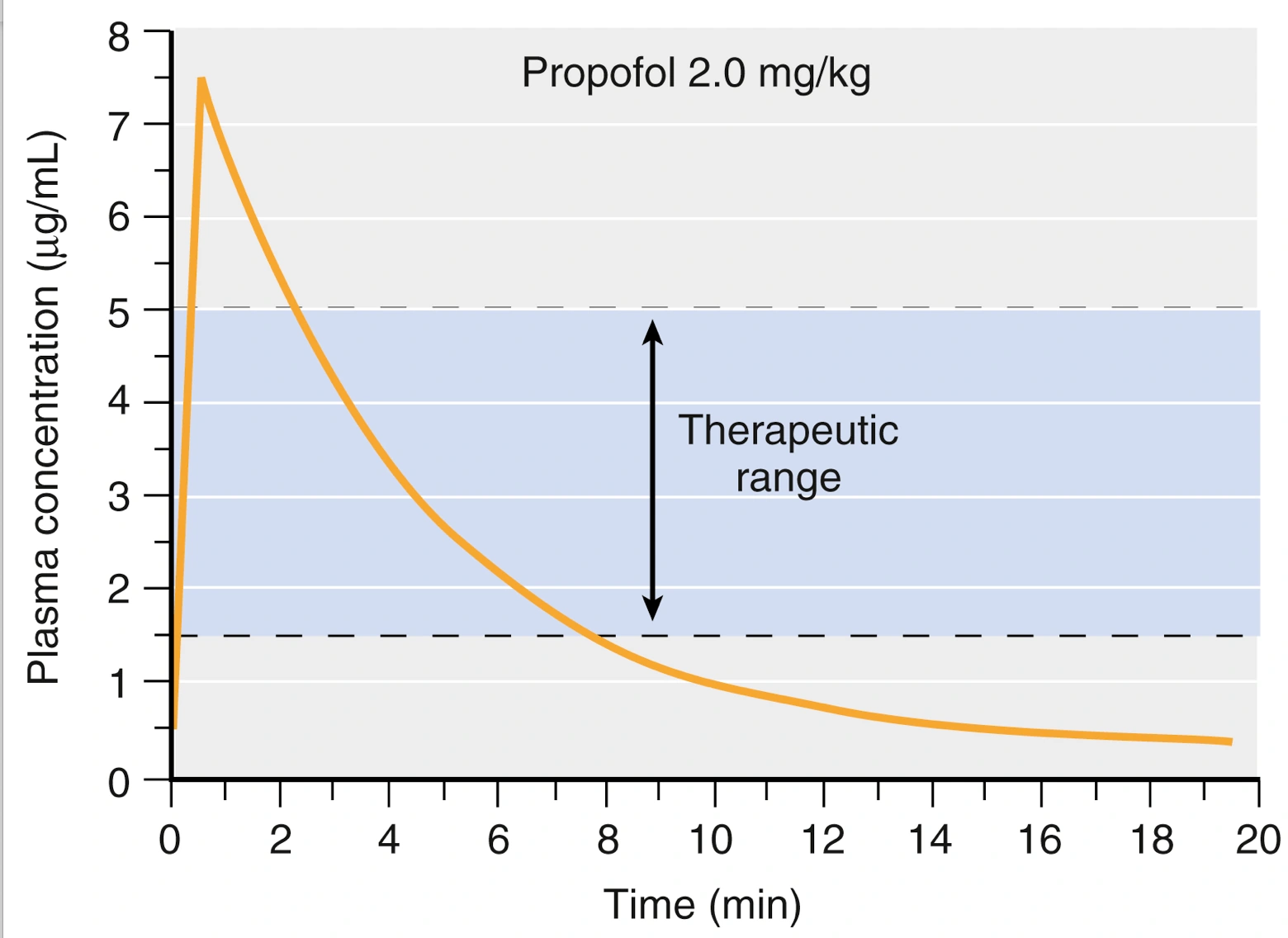
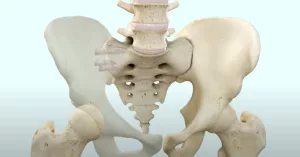

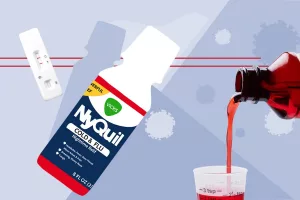



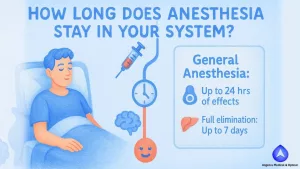



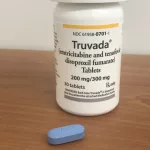

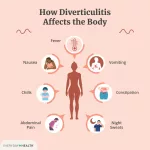










Leave a Reply
You must be logged in to post a comment.